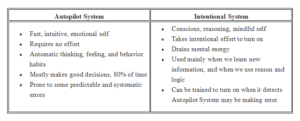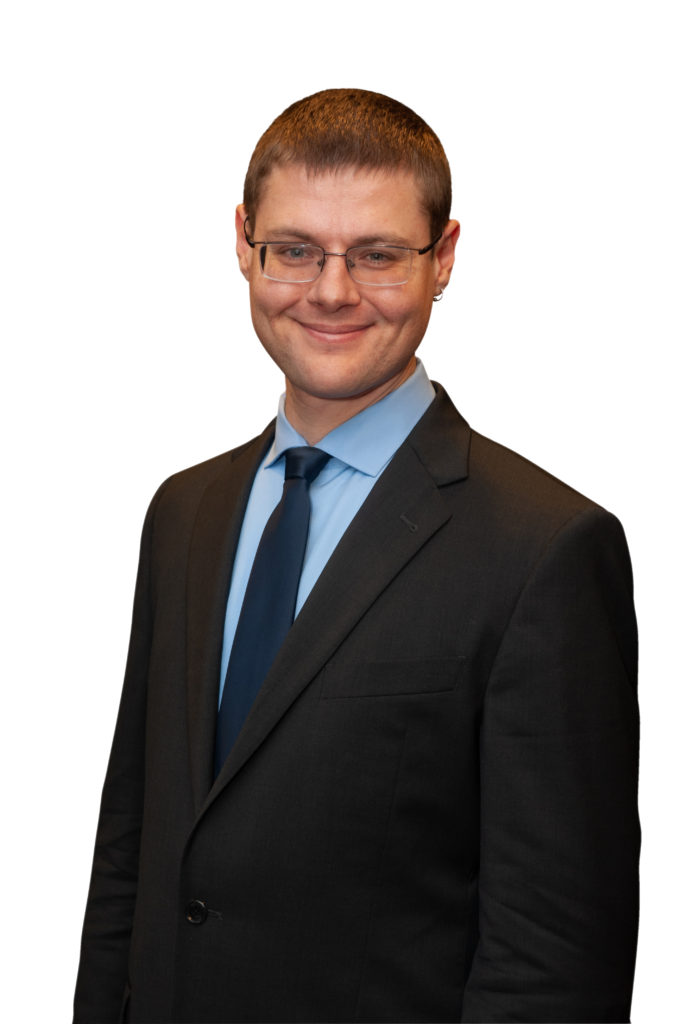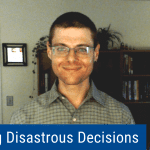
True leaders at any level of the totem pole show their leadership primarily through emotional intelligence, knowing and managing their own emotions. After all, the only things we can control in life are our thoughts, feelings, and behaviors, and if we can manage those, we can lead our organizations from anywhere in the hierarchy.
If we know about how our minds work, we can be intentional about influencing our own thinking and feeling patterns. We can evaluate reality more clearly, make better decisions, and improve our ability to achieve goals, thus gaining greater agency, the quality of living intentionally.
How do our minds work? Intuitively, our mind feels like a cohesive whole. We perceive ourselves as intentional and rational thinkers. Yet cognitive science research shows that in reality, the intentional part of our mind is like a little rider on top of a huge elephant of emotions and intuitions.
Roughly speaking, we have two thinking systems. Daniel Kahneman, who won the Nobel Prize for his research on behavioral economics, calls them System 1 and 2, but I think autopilot system and intentional system describe these systems more clearly. The term intentional system in particular is useful as a way of thinking about living intentionally and thereby gaining greater agency.
The autopilot system corresponds to our emotions and intuitions. Its cognitive processes take place mainly in the amygdala and other parts of the brain that developed early in our evolution. This system guides our daily habits, helps us make snap decisions, and reacts instantly to dangerous life-and-death situations, like saber-toothed tigers, through the freeze, fight, or flight stress response. While helping our survival in the past, the fight-or-flight response is not a great fit for modern life.
We have many small stresses that are not life-threatening, but the autopilot system treats them as tigers, producing an unnecessarily stressful everyday life experience that undermines our mental and physical well-being. Moreover, while the snap judgments resulting from intuitions and emotions usually feel true because they are fast and powerful, they sometimes lead us wrong, in systemic and predictable ways.
The intentional system reflects our rational thinking, and centers around the prefrontal cortex, the part of the brain that evolved more recently. According to recent research, it developed as humans started to live within larger social groups. This thinking system helps us handle more complex mental activities, such as managing individual and group relationships, logical reasoning, probabilistic thinking, and learning new information and patterns of thinking and behavior.
While the automatic system requires no conscious effort to function, the intentional system takes deliberate effort to turn on and is mentally tiring. Fortunately, with enough motivation and appropriate training, the intentional system can turn on in situations where the autopilot system is prone to make errors, especially costly ones.
Here’s a quick visual comparison of the two systems:

The autopilot system is like an elephant. It’s by far the more powerful and predominant of the two systems. Our emotions can often overwhelm our rational thinking. Moreover, our intuitions and habits determine the large majority of our life, which we spend in autopilot mode. And that’s not a bad thing at all — it would be mentally exhausting to think intentionally about our every action and decision.
The intentional system is like the elephant rider. It can guide the elephant deliberately to go in a direction that matches our actual goals. It can help you address the systematic and predictable errors that we make due to how our brain is wired, what scholars term cognitive biases. Over 100 cognitive biases exist, and more are found all the time by scholars in behavioral economics and cognitive neuroscience.
These errors lead to dangerous mistakes for leaders, in everything from mergers and acquisitions to assessing company performance. They also hurt is in our personal life. For example, two Top10.com surveys shows that we tend to go with our gut reactions and thus fall for cognitive biases in our shopping decisions, which are driven by our external context to a surprisingly powerful extent.
Fortunately, recent research in these fields shows how you can use pragmatic strategies to notice and address these dangerous judgment errors. You can do so using structured techniques to assess cognitive biases in your workplace, and then use effective decision-making strategies for making quick everyday decisions, for more complex and significant ones, and for critically important and highly complex choices. You also need to avoid failures and maximize success in implementing decisions.
The elephant part of the brain — which is most prone to cognitive biases — is huge and unwieldy, slow to turn and change, and stampedes at threats. But we can train the elephant. Your rider can be an elephant whisperer. Over time, you can use the intentional system to change your automatic thinking, feeling, and behavior patterns, and become a better agent in taking charge over your life and career, and reaching your leadership goals!
Key Takeaway
Leaders need to show high emotional intelligence, meaning knowing and managing their emotions. That means noticing when their autopilot thinking system, which is governed by emotions, is leading them astray, and using their intentional thinking system, governed by reason, to correct it. -> Click to Tweet
Questions to Consider (please share your answers in the blog comments)
- What steps do you think you can take to evaluate where your emotions and intuitions may lead you to make mistakes?
- What can you do to be prepared to deal with these situations in the moment?
- What can you do to be an elephant whisperer and retrain your elephant to have thinking, feeling, and behavior patterns that match your long-term goals?
- How can attention to emotional intelligence impact your leadership positively?
Photo Credit: Fotolia ra 2 studio
— -
Bio: Dr. Gleb Tsipursky is on a mission to protect leaders from dangerous judgment errors known as cognitive biases. His expertise and passion is using pragmatic business experience and cutting-edge behavioral economics and cognitive neuroscience to develop the most effective and profitable decision-making strategies. A best-selling author, he wrote Never Go With Your Gut: How Pioneering Leaders Make the Best Decisions and Avoid Business Disasters (2019), The Truth Seeker’s Handbook: A Science-Based Guide (2017), and The Blindspots Between Us: How to Overcome Unconscious Cognitive Bias and Build Better Relationships (2020). Dr. Tsipursky’s cutting-edge thought leadership was featured in over 400 articles and 350 interviews in Fast Company, CBS News, Time, Business Insider, Government Executive, The Chronicle of Philanthropy, Inc. Magazine, and elsewhere.
His expertise comes from over 20 years of consulting, coaching, and speaking and training experience as the CEO of Disaster Avoidance Experts. Its hundreds of clients, mid-size and large companies and nonprofits, span North America, Europe, and Australia, and include Aflac, IBM, Honda, Wells Fargo, and the World Wildlife Fund. His expertise also stems from his research background as a behavioral economist and cognitive neuroscientist with over 15 years in academia, including 7 years as a professor at the Ohio State University. He published dozens of peer-reviewed articles in academic journals such as Behavior and Social Issues and Journal of Social and Political Psychology.
He lives in Columbus, OH, and to avoid disaster in his personal life makes sure to spend ample time with his wife. Contact him at Gleb[at]DisasterAvoidanceExperts[dot]com, follow him on Twitter @gleb_tsipursky, Instagram @dr_gleb_tsipursky, Facebook, YouTube, RSS, and LinkedIn. Most importantly, help yourself avoid disasters and maximize success, and get a free copy of the Assessment on Dangerous Judgment Errors in the Workplace, by signing up for his free Wise Decision Maker Course.
Originally published at Disaster Avoidance Experts on December 11, 2017.














